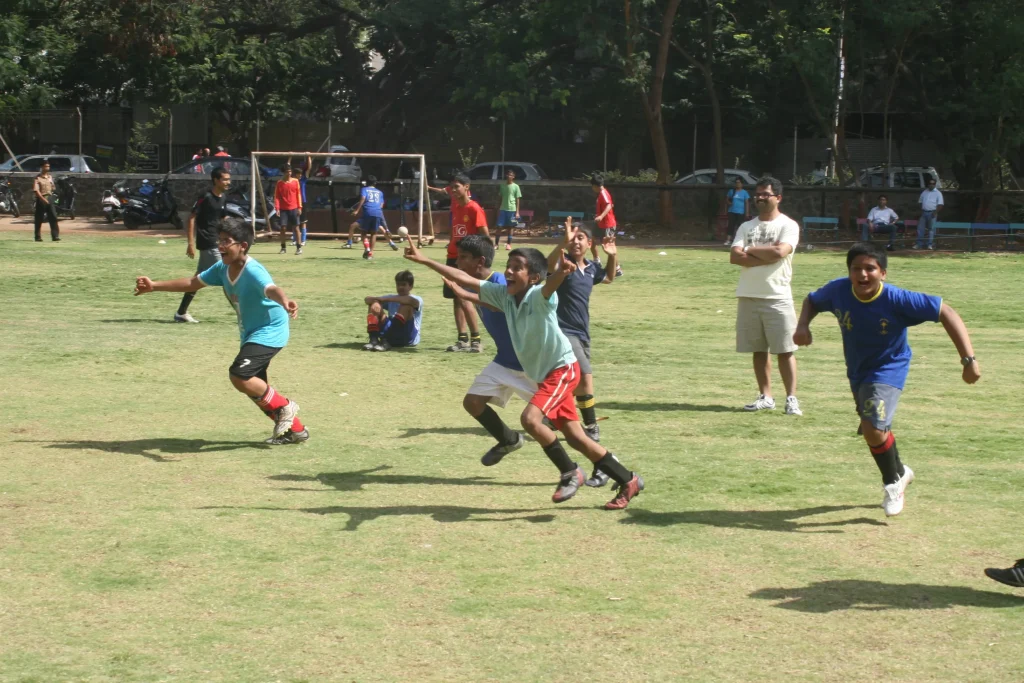Youth sports development is about more than just winnable games; it’s about shaping capable, confident athletes who love the process of learning. Youth sports coaching tips help coaches, parents, and program directors design experiences that help kids acquire motor skills, strategic thinking, teamwork, and a growth mindset. When you combine practical coaching hacks with evidence-based principles of youth development, you create a comprehensive framework that fosters skill development in youth sports while also building the self-belief that young athletes need to try new things, recover from mistakes, and stay engaged over the long term, with safe practice, structured progression, and inclusive participation so that beginners feel capable from their first session and more experienced players find continued challenge. This holistic approach also translates into greater participation, deeper learning, and a healthier attitude toward practice, because drills connect to real-game contexts and give kids confidence to take thoughtful risks; cues feel actionable, feedback is constructive, and routines include variety, reflection, and peer support to reinforce learning, resilience, and social-emotional growth. In this article, you’ll find practical, adaptable tips that align everyday coaching with the broader goals of youth sports development and lay a clear path toward skill improvement and sustained participation, guiding families and clubs toward a culture of growth.
Viewed through an LSI lens, the same idea unfolds under different naming: junior athlete development, youth athletic training, and kid-friendly skill progression that keeps curiosity at the center. LSI-inspired writing emphasizes semantic relationships—context, synonyms, and related skills—so coaches can connect drills to game actions and students can transfer learning across sport and position, including coaching hacks for youth athletes. Instead of relying on a single label, the content highlights transferable attributes such as movement quality, decision making, teamwork, and resilience, embedded in varied formats like small-sided games, circuit stations, and reflective reviews. By aligning these concepts with practical examples and actionable tips, the piece remains informative, accessible, and SEO-friendly without sacrificing reader experience.
Youth sports development: Building Skill, Confidence, and a Love of the Game
Youth sports development aims to shape capable, confident athletes who enjoy the process of learning. This goes beyond winning games and focuses on building motor skills, strategic thinking, teamwork, and a growth mindset. To support this, coaches can blend practical coaching tips with evidence-based youth development principles, creating experiences that foster both skill development in youth sports and the confidence young athletes need to try new things, recover from mistakes, and show up ready to learn.
A well-designed program uses clear progression, age-appropriate targets, and engaging activities that align with long-term athlete development. When we weave in youth sports coaching tips and strategies for confidence building in youth sports, sessions become more than drills—they become pathways to mastery, resilience, and sustained participation in sport. This holistic approach helps youth interpret skill work as meaningful, transferable, and enjoyable, which is essential for lifelong involvement in athletics.
Coaching Hacks for Youth Athletes: Practical Methods to Accelerate Skill Transfer
Coaching hacks for youth athletes are practical tools that accelerate skill acquisition while keeping sessions engaging. Micro-drills, constraints-led practices, and gamified activities translate technical concepts into repeatable actions and memorable experiences. This approach supports skill development in youth sports by emphasizing repetition with purpose and by providing immediate, actionable feedback that reinforces correct technique without overwhelming the learner.
Effective coaching in youth settings also emphasizes reflection, clear feedback, and structured routines. By designing sessions that link practice to real-game decisions, coaches enhance athlete development for youth and promote confidence building in youth sports. Small-sided games, varied practice environments, and growth-mindset cues help young players see progress, stay motivated, and feel capable of mastering new skills in a supportive, fun context.
Frequently Asked Questions
What are the core principles of youth sports development that coaches should apply to improve skill development in youth sports?
Core principles of youth sports development include: Deliberate practice with age-appropriate goals — break skills into small parts and set clear targets for each session. Progressive overload with safety — gradually increase complexity while ensuring proper technique. Skill specificity and transfer — start with general movement patterns and translate them to sport-specific actions. Feedback that fuels improvement — mix intrinsic feedback with clear cues and next steps. Structured, enjoyable practice design — balance challenge with fun to sustain engagement and motivation. These principles, aligned with youth sports coaching tips, support skill development in youth sports and lay the groundwork for confidence building in young athletes.
| Topic | Key Points |
|---|---|
| Introduction | Youth sports development aims beyond wins: builds capable, confident athletes who enjoy learning; design experiences to develop motor skills, strategic thinking, teamwork, and growth mindset; combine coaching hacks with evidence-based principles to foster skill and confidence. |
| Principles of Youth Skill Development | Core ideas: deliberate practice with age-appropriate goals; progressive overload with safety; skill specificity and transfer; feedback that fuels improvement. |
| Coaching Hacks You Can Use | Micro-drills; constraints-led practice; gamified practice; precise cueing; visible progress markers; routine/structure; growth mindset prompts; social-emotional learning. |
| Designing Sessions for Skill Transfer | Contextualized practice; variable practice; small-sided games; reflection/self-assessment to promote autonomous learning and confidence. |
| Confidence Building Strategies | Mastery-focused praise; goal setting; safe risk-taking; peer support/leadership; balanced feedback loops to foster self-belief and perseverance. |
| Measurement and Progress Tracking | Track progress with rubrics, periodic skill tests, video reviews, and player journals to motivate and guide development. |
| Common Mistakes to Avoid | Overload early learners; ignore individual differences; focus only on outcomes; neglect rest; forget to keep sessions fun. |
| Conclusion (Takeaways) | Effective youth sports development blends skill acquisition with confidence building, structured practice with game-like learning, thoughtful feedback, and celebration of progress to foster lifelong participation and teamwork. |
Summary
HTML table explaining key points of the base content in English.



